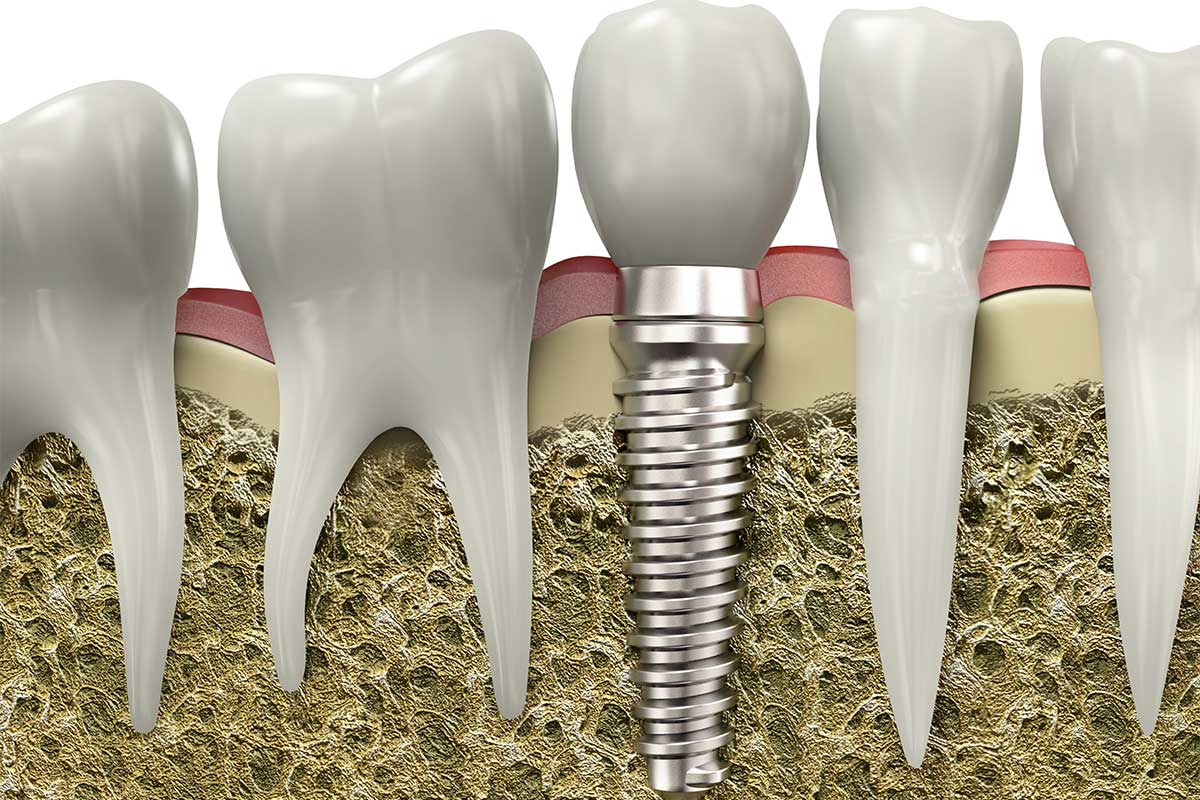
25
Mar
4 Potential Obstacles to Getting Dental Implants

When you’re just looking at the numerous benefits they offer – chewing strength, stability, a long lifespan, and improved jaw health – getting dental implants seems like an easy choice. But before anything else, your dentist will need to figure out whether you’re a viable candidate for implants in the first place. In this post, you can learn more about 4 issues that often serve as obstacles to dental implant surgery as well as how they can be dealt with to ultimately make your new smile a reality.
1. Gum Disease
Infections at the implant site can easily lead to implant failure, destroying the surrounding tissues and preventing the implant post from properly joining with the jawbone. If you currently have gum disease, then it needs to be treated before implant surgery can have any chance of success. Some cases of gum disease are more severe than others; for example, gingivitis, the very earliest stage of gum disease, is often mild enough to be treated with cleaning and good oral hygiene. Nevertheless, even the smallest signs of infection need to be dealt with before it’s safe to place implants.
2. Bone Loss
You may have heard that dental implants can prevent bone loss (a common consequence of missing teeth), but what if the jaw has already started to break down because you waited too long? Implants need a certain amount of bone tissue to support them, so any bone loss that has already occurred needs to be treated first. Fortunately, tissue can be taken from elsewhere in your body and reapplied to the areas where bone loss has occurred.
3. Allergies
Most dental implants are made out of titanium. It is very rare to be allergic or sensitive to titanium, but it’s not completely unheard of either. An allergic reaction to titanium can lead to swelling and a loss of taste, so it’s obviously best to avoid the issue altogether if you can. If you do have a titanium allergy, you might still be able to get implants made out of zirconia instead.
4. Diabetes
Diabetes can increase the risk of dental implant failure. Uncontrolled blood sugar can affect your body’s ability to heal and may reduce your resistance to infection. Diabetic patients can still often get implants, but they’ll need to be prepared for a longer healing process and will need to be extra careful when it comes to keeping the mouth clean and free of infection.
With the right preparatory procedures and the proper precautions, almost anyone who has lost a tooth can be a viable candidate for dental implants. Set up a consultation with your dentist today to see if they’re right for you.
About the Author
Dr. John E. Russo earned his dental DMD degree with honors from the University of Florida in 1993. Today, he is providing high-quality general and cosmetic dentistry for families in Orlando. He is always happy to teach patients about the benefits of dental implants as well as the necessary steps for placing them. To learn about your own candidacy for implants, visit his website or call (407) 470-1224.












